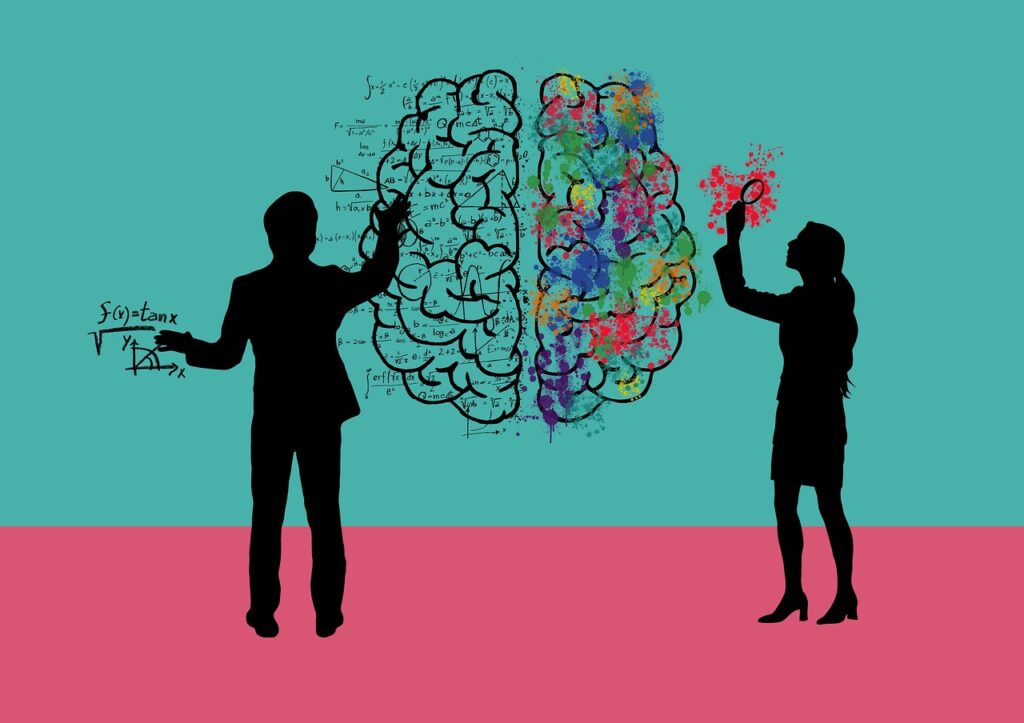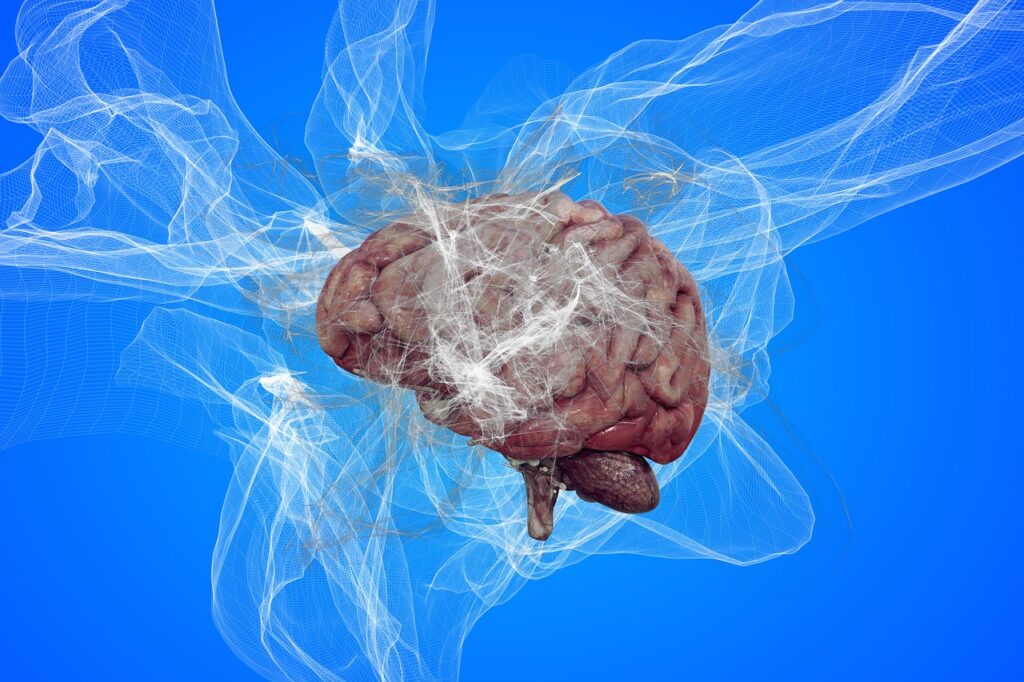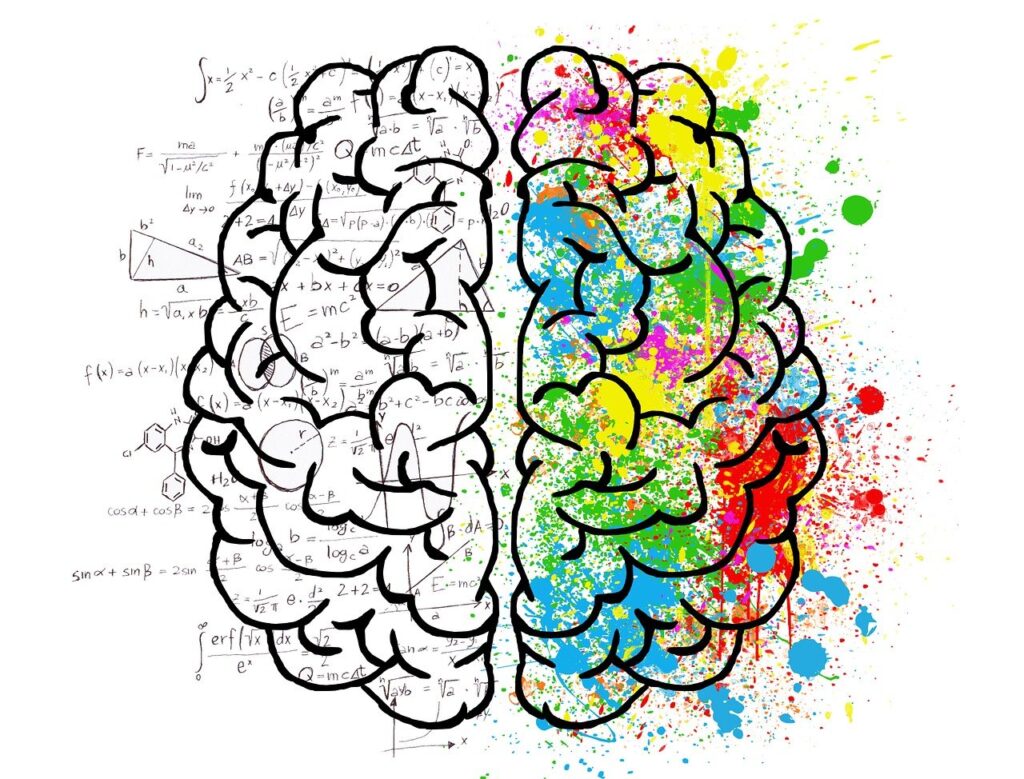
It’s a fascinating, often overlooked truth: our intelligence isn’t a static parameter etched in stone from birth, destined to wane with age. Many people harbor the general misconception that intellectual capacity is a fixed value, set in their youth, with no real chance of alteration as they mature. However, cutting-edge research consistently demonstrates that improving our intelligence is not only possible but actively achievable at any age, shaped profoundly by the habits we cultivate and our fundamental outlook on life. Adopting a growth mindset, for instance, as opposed to a fixed one, can significantly enhance our cognitive abilities, paving a dynamic path toward lifelong intellectual development.
In our hyper-connected modern world, a pervasive threat looms over our cognitive well-being, ominously dubbed “Brain Rot.” The Oxford University Press, recognizing its growing prevalence, has even crowned “Brain Rot” as the official Word of the Year for 2024. It’s defined as “the supposed deterioration of a person’s mental or intellectual state,” stemming from the “over-consumption” of trivial material, particularly the endless scroll of internet memes and virtual excesses. Neuroscientists are increasingly concerned, telling us that this trend can dampen a truly smart, “thinking” brain, highlighting the urgent need for conscious intervention.
Your brain, in essence, is your most steadfast companion—a diligent sidekick operating 24/7, never leaving your side (or, perhaps more accurately, your head). To neglect this neurological ally is to risk falling prey to the insidious effects of “Brain Rot.” Fortunately, modern neuroscience, armed with advanced imaging techniques, has deepened our understanding of how to prevent this deterioration and, more importantly, how to nurture our brains for optimal happiness and career success. This article will embark on an in-depth exploration of 14 science-backed habits, drawing from expert insights and rigorous research, designed to inoculate your mind from “Brain Rot” and unleash your cognitive potential.
1. **Cultivating Psychological Safety**One of the paramount requirements for a smart, high-performing brain is an environment steeped in psychological safety. When an individual feels genuinely safe, their brain is liberated to focus its energy on complex work tasks, creative problem-solving, and meaningful engagement. Conversely, in climates of fear—such as those fostered by a cut-throat boss or a highly competitive, insecure environment—the brain instinctively diverts its resources toward threat detection and self-preservation, distracting it from the very tasks it needs to engage with and produce. This primal response to threat, ingrained in our neurology, has undermined well-being, engagement, and workplace performance for the entirety of professional history.
Creating a work culture defined by psychological safety is not merely a soft skill or a feel-good initiative; it is a critical neurological investment. Such cultures actively prevent “Brain Rot” by reducing the chronic stress that can impair cognitive function. When the threat response is minimized, the brain can operate from a place of curiosity and innovation, fostering deeper engagement and more sustained intellectual effort. This enhanced brain engagement directly translates into greater long-term company profits, demonstrating a clear link between a psychologically safe environment and tangible organizational success. It’s a powerful testament to the idea that a happy, secure brain is fundamentally a smarter, more productive brain.
Imagine a workplace where ideas are openly shared without fear of ridicule, where mistakes are seen as learning opportunities, and where support is readily available. In such an environment, the cognitive load associated with navigating interpersonal anxieties is significantly reduced. This allows individuals to allocate their mental resources more efficiently, leading to clearer thinking, better decision-making, and a more robust capacity for complex problem-solving. Psychological safety, therefore, acts as a foundational pillar, enabling the brain to reach its full potential and ward off the mental fatigue and stagnation associated with chronic stress.
It’s about more than just comfort; it’s about creating the optimal conditions for neuroplasticity and sustained cognitive function. When fear is present, the brain operates in a defensive mode, limiting its ability to form new connections or adapt to novel situations. By actively fostering psychological safety, we not only protect our employees’ mental states but also unlock a collective intelligence, ensuring that every brain within the organization can contribute its sharpest, most engaged self to the tasks at hand. This proactive approach is a powerful antidote to “Brain Rot” in professional settings.
Read more about: Beyond Boot Camp: 14 Essential Military Hacks That Could Be Your Lifeline in a Crisis

2. **Nourishing Your Brain with Mood-Boosting Foods**The adage “you are what you eat” extends profoundly to the intricate workings of your brain. The casual consumption of junk foods, the pervasive “food noise” of endless snack options, and the tendency to “gobble-gulp-and-go” through meals can set a dangerous precedent, potentially leading to “Brain Rot.” In contrast, a diet rich in healthy brain foods serves as a potent ally, not only boosting your mood and overall health but also enhancing your mental endurance. It’s an invitation to scrutinize the contents of your plate and genuinely ask whether it promotes optimal brain health.
Proteins, for instance, found abundantly in meats, poultry, dairy, cheese, and eggs, play a crucial role by stabilizing blood sugar levels. This stability is vital for consistent brain function, preventing the energy dips that can lead to foggy thinking and reduced concentration. Furthermore, proteins supply the essential amino acids your brain requires to construct neurotransmitter pathways, the critical communication networks that govern mood, thought, and memory. Without an adequate supply of these building blocks, the brain’s ability to communicate effectively can be compromised, paving the way for cognitive sluggishness.
Omega-3 fatty acids are another cornerstone of brain health, renowned for their ability to put your brain in a good mood. Fish such as salmon, mackerel, tuna, and sardines are excellent sources of these essential fats. These fatty acids are integral components of brain cell membranes and are known to support cognitive function and reduce inflammation. Neurologists themselves prioritize proper nutrients, with Dr. Muñoz advocating for “lots of fruits and vegetables, lots of whole grains, and lean meats,” acknowledging that “a healthy, nutrient-rich diet is associated with a lower risk of cognitive decline.” This expert consensus underscores the direct link between dietary choices and sustained cognitive vitality.
Beyond omega-3s, a spectrum of vitamins is indispensable. Vitamin B, crucial for overall brain wellness, can be found in a diverse range of foods including eggs, whole grains, fish, avocados, and citrus fruits. It plays a role in energy production within brain cells and the synthesis of neurotransmitters. Additionally, vitamin D stands out as an important mood stabilizer, with its deficiency linked to various neurological issues. While there’s no single “perfect” diet, the consistent inclusion of antioxidant-rich produce like blueberries and leafy greens, anti-inflammatory foods like olive oil, and omega-3 powerhouses like walnuts and chia seeds, forms a robust nutritional defense against “Brain Rot.” As Dr. Muñoz wisely points out, the goal isn’t dietary perfection, but sustainable, enjoyable choices that support your brain’s long-term health, often requiring thoughtful meal prep like Dr. Cardiel’s approach of grilling poultry and steaming veggies on weekends.
3. **Harnessing the Power of Physical Exercise**Sedentary lifestyles and a pervasive lack of physical exercise are direct contributors to “Brain Rot.” Becoming a “desk potato” not only impacts physical health but significantly starves your brain of what it desperately needs: robust blood flow. Regular exercise and consistent movement are powerful medicines for maintaining a happy, viable, and creative brain. They effectively amp up the circulation of blood to the brain, delivering essential oxygen and nutrients, and demonstrably slow the onset of memory loss and degenerative conditions such as dementia. This vital connection between body and mind is consistently highlighted by experts, with neurologists universally placing physical activity at the top of their list for cognitive health.
Dr. Claudia Muñoz, a board-certified neurologist, emphatically states that “the absolute number one habit is staying physically active.” This sentiment is echoed by Dr. Ayushi Chugh, who explains that physical activity “helps to promote neuroplasticity, or the brain’s ability to adapt and form new connections.” A comprehensive 2011 article from Mayo Clinic Proceedings, cited by Dr. Chugh, compiled extensive research demonstrating that regular aerobic exercise offers substantial protection against cognitive impairment and significantly lowers the risk of dementia. It’s a clear signal from the scientific community: movement is non-negotiable for brain vitality.
But the benefits extend beyond just cardiovascular health. While aerobics, walking, and other forms of cardio are excellent for feeding your brain the excess blood it needs, strength training also plays a crucial role. Dr. Chugh highlights that strength training, by engaging both weights and coordination, helps to “sprout a lot of connections” within the brain. This multifaceted approach to physical activity ensures that different neural pathways are stimulated and strengthened. Dr. Myrna Cardiel, a general neurologist, recommends aiming for at least 150 minutes per week of moderate exercise, a target that supports both overall and brain health, and she personally embraces this by getting gym memberships for her family to encourage collective activity.
In essence, exercise sharpens your focus, dramatically improves memory and recall abilities, and undeniably enhances productivity across the board. Even in children, physical activity is recognized as a simple yet critical means of enhancing mental functioning, central to their cognitive development and executive functioning—the cognitive processes vital for choosing, organizing, and initiating goal-directed actions. Experiments on both adult humans and animals consistently reveal that regular, extended exercise profoundly improves brain function related to cognition and behavior. By keeping your body crisp, engaging, and in tip-top shape, you are simultaneously nurturing a smarter, more resilient brain.
Read more about: Beyond Coffee: 14 Actionable Habits for All-Day Energy and Peak Productivity
4. **Prioritizing Ample, Restorative Sleep**To put it plainly, your brain demands the rest it needs, and without it, it gets “mad.” Sleep deprivation is a direct pathway to “Brain Rot,” severely hampering your ability to cope with job stress and often unleashing irritability and anger throughout your workday. The consequences are far-reaching: a lack of sufficient sleep leads to slower brain activity, a pervasive cloudiness in thinking, and an alarming increase in forgetfulness. It actively interferes with memory consolidation and learning processes, short-circuiting attention spans and making it incredibly difficult to focus on tasks. Fragmented or insufficient sleep subtly but significantly undermines your capacity to perceive the positive aspects of your career, leaving you overly reactive to daily job stressors.
Neurologists are resolute in their emphasis on sleep. Dr. Chugh, for instance, powerfully likens the brain to a smartphone: “If you forget to charge your smartphone the night before, it’s going to glitch or it’s going to die down in the middle of the day. It’s not going to be efficient.” This analogy perfectly captures the brain’s fundamental need for regular, uninterrupted periods of recharge. It’s during sleep that your brain engages in critical restorative processes, clearing out metabolic waste products that accumulate during waking hours and consolidating memories from the day. Without this essential “charging,” cognitive performance inevitably suffers.
Ample, restorative sleep doesn’t just prevent the negatives; it actively restores clarity, significantly enhances performance, and plays a crucial role in refining cortical plasticity. This neuroplasticity, the brain’s ability to reorganize itself by forming new neural connections, is vital for adaptive learning and resilience. By allowing your brain sufficient rest, you empower it to more effectively manage job stress, process complex information, and set a robust foundation for a truly smart and resilient mind. It’s during these deep sleep cycles that the brain actively works to solidify learned information, improve problem-solving skills, and prepare for the challenges of the next day.
Therefore, prioritizing sleep is not a luxury but a fundamental cognitive imperative. It’s about more than just feeling rested; it’s about providing your brain with the optimal conditions for sustained high performance and long-term health. Ignoring the brain’s cry for rest is to invite cognitive decline and limit its innate potential. For neurologists and anyone seeking to preserve their cognitive sharpness, pulling an all-nighter, outside of dire circumstances like medical school, is simply not an option. Good sleep hygiene is a powerful, yet often undervalued, weapon against the creeping threat of “Brain Rot.”
Read more about: Beyond Coffee: 14 Actionable Habits for All-Day Energy and Peak Productivity
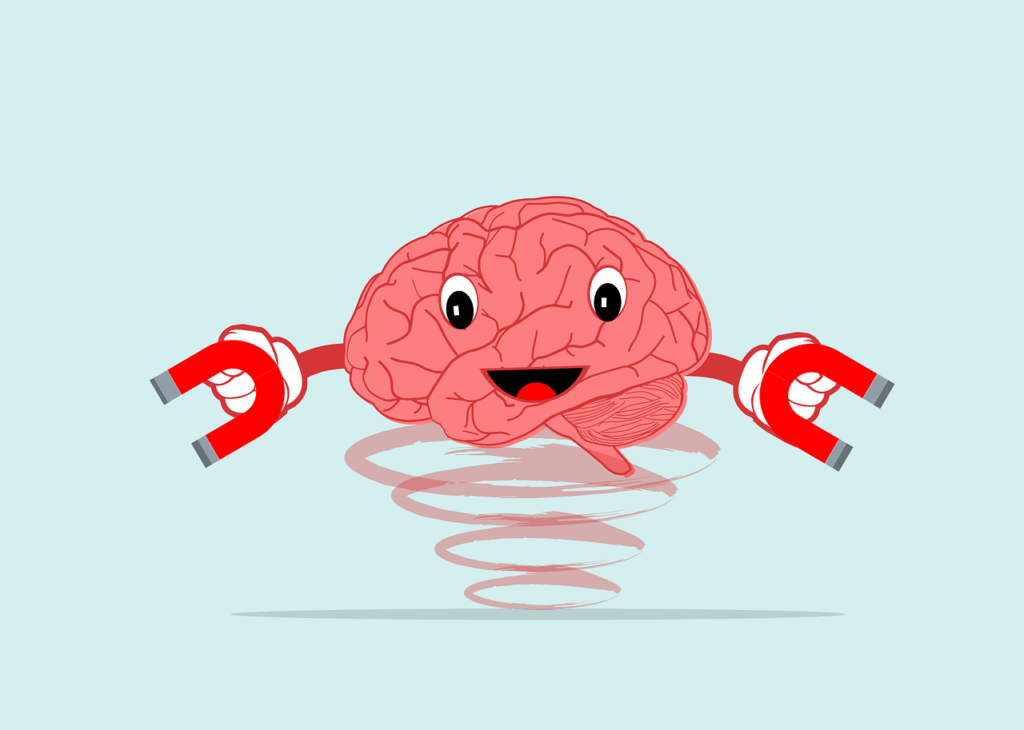
5. **Adopting a Broad Perspective**In the intricate landscape of cognitive health, cultivating a broad perspective serves as a powerful shield against “Brain Rot,” enabling your mind to construct upon the positive dimensions of your career and envision a multitude of future possibilities. The metaphor of a camera lens beautifully illustrates this concept: we often default to a myopic “zoom lens,” fixating intensely on stressors and minor setbacks, a habit that unfortunately can lead directly to “Brain Rot.” The antidote lies in consciously switching to a “wide-angle lens,” which magnifies the big picture, showcasing the vast expanse of life’s possibilities and opportunities.
This shift in perspective is a deliberate cognitive exercise. It involves actively resisting the urge to inflate disappointments, instead seeking out the inherent upside in seemingly negative situations. Rather than getting bogged down in identifying problems, a broad perspective directs your mental energy toward pinpointing and developing work solutions. It encourages you to view challenges not as insurmountable obstacles but as fertile ground for opportunity. This reframing of perception is critical because it alters the brain’s default response from one of threat and contraction to one of exploration and expansion.
When your brain is stuck in a “zoom lens” mode, it can become trapped in a loop of negative rumination, narrowing your cognitive pathways and limiting your ability to innovate or adapt. This constricted focus can foster anxiety and stress, actively hindering your brain’s capacity for creative thought and long-term planning. By intentionally embracing a “wide-angle lens,” you physically enlarge your mental perspective, literally expanding the neurological frameworks within your brain. This expansive view serves as an essential antidote to “Brain Rot” by fostering mental flexibility and resilience.
It’s about training your mind to see beyond the immediate, to connect disparate elements, and to appreciate the larger context of events. This not only enhances problem-solving skills but also cultivates a more optimistic and adaptive cognitive state. A broad perspective allows for greater emotional regulation, preventing minor frustrations from escalating into overwhelming stressors. Ultimately, by consistently practicing this wide-angle view, you equip your brain with the tools to navigate complexities, seize opportunities, and maintain a robust, dynamic intellectual landscape, making it less susceptible to the intellectual atrophy that defines “Brain Rot.”
Read more about: Driving Expert’s ‘Clever’ Hack: Stop Tailgaters Safely Without Ever Touching Your Brakes
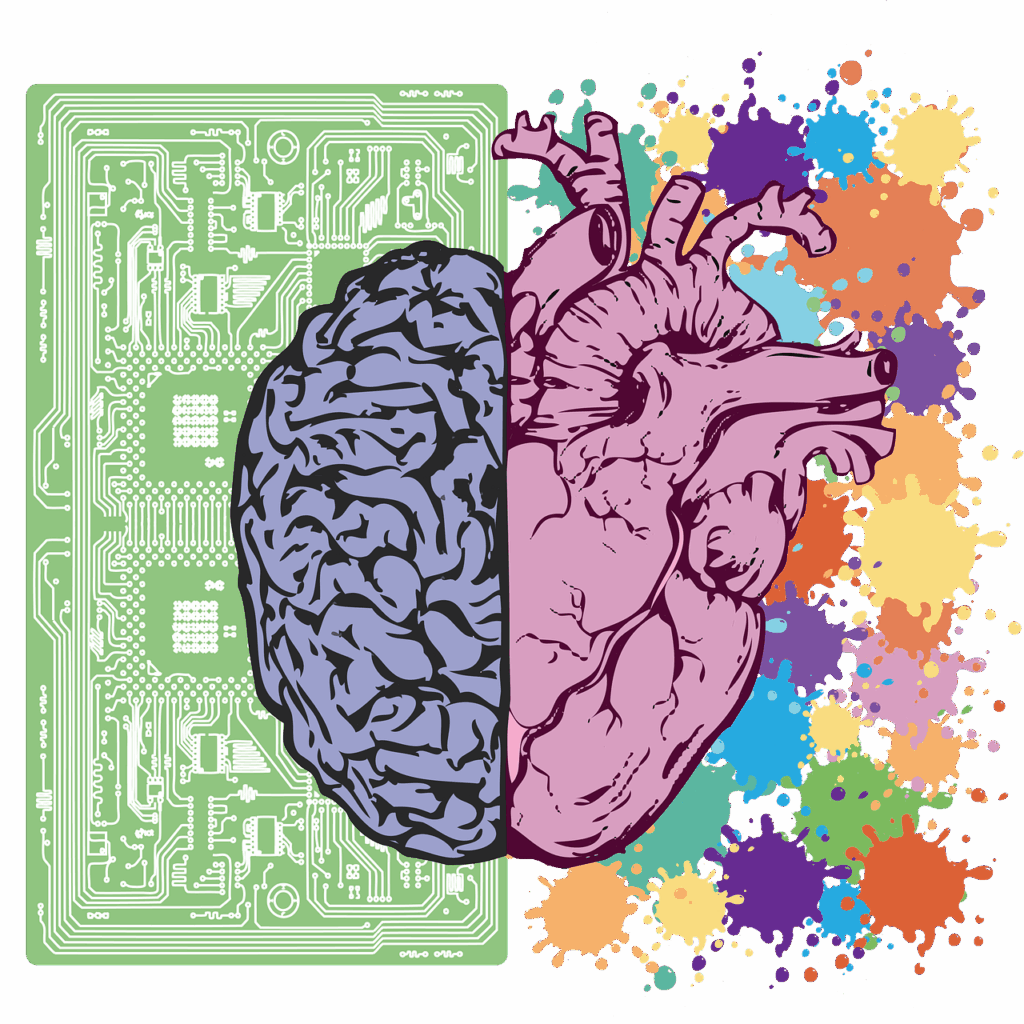
6. **Practicing Mindfulness for Digital Detox**In an age dominated by screens and incessant digital noise, mindfulness techniques emerge as profoundly powerful antidotes to the virtual excesses that fuel “Brain Rot.” The mindless scrolling through social media, immersive gaming sessions that consume hours, relentless Internet surfing, or passively streaming the vast “television wasteland” all contribute to a state of cognitive overload and fragmented attention. Mindfulness meditation and the conscious practice of deep breathing offer a direct countermeasure, preventing your brain from wandering aimlessly and keeping your focus razor-sharp on the present moment.
The scientific backing for mindfulness is compelling. Meditation has been shown to reduce cortisol levels—the primary stress hormone—by a remarkable 25%. Beyond stress reduction, it actively alters brain activity, leading to a significant decrease in error rates and mistakes after just 20 minutes of practice. Over time, consistent engagement with mindfulness cultivates a brain that remains remarkably calm and focused, even when confronted with turbulent circumstances. This sustained mental composure is a vital defense against the cognitive disarray that characterizes “Brain Rot,” allowing for clearer thinking and more intentional responses.
The practice involves four simple yet profound steps to harness the social circuitry of your brain and sidestep “Brain Rot,” enabling you to attune to your life with an unparalleled clarity of mind. First, consciously keep your focus anchored in the present moment, resisting the pull of past regrets or future anxieties. Second, cultivate a steady, calm pace in all your actions, avoiding the rushed, frantic energy that often accompanies digital distractions. Third, remain deeply attuned to yourself and your immediate surroundings, fostering a sense of connection to your physical and sensory experiences. Finally, and perhaps most crucially, accept without judgment whatever arises in each moment of your awareness, whether it be thoughts, feelings, or sensations. This non-judgmental acceptance is key to releasing cognitive baggage.
By engaging in these practices, you actively strengthen your brain’s capacity for sustained attention and emotional regulation, directly counteracting the desensitizing and distracting effects of excessive screen time. This deliberate digital detox, facilitated by mindfulness, not only mitigates “Brain Rot” but also fosters a smart, happy brain. It’s about reclaiming your mental space from the digital deluge and reconnecting with the richness of the present, allowing your brain to truly rest, reset, and flourish in a state of intentional awareness rather than passive consumption.
Read more about: Beyond Coffee: 14 Actionable Habits for All-Day Energy and Peak Productivity

7. **Embracing Brain Fitness and Novelty**”Brain Rot” often manifests as an interference with your brain’s intrinsic ability to adapt to novel situations, a capacity that is absolutely essential for sustained career happiness and creative output. To effectively sidestep this cognitive stagnation, it is paramount to keep your brain actively fit and consistently challenged. The brain thrives on exposure to new experiences, which inherently dampen established, rigid thought patterns. This process is crucial for the consolidation of new information and the development of more flexible neural pathways, ensuring your mind remains agile and responsive.
Novelty isn’t merely entertaining; it’s a powerful cognitive enhancer. It directly promotes adaptive learning by literally resetting key brain circuits, thereby enhancing your ability to integrate new ideas and experiences into existing neurological frameworks. When you engage with novel stimuli, your brain creates new connections and strengthens existing ones, much like building new roads in a complex network. This continuous process of neural recalibration is fundamental to intellectual growth and maintaining cognitive vitality, directly combating the mental inertia that characterizes “Brain Rot.”
Challenging your brain through activities like puzzles, dedicated reading, or actively learning a new skill has been extensively shown to slow cognitive decline and significantly prevent degenerative disorders. It’s about deliberately pushing beyond your comfort zone, sticking your neck out, trying new things, and actively seeking out new experiences. Neurologists, in their own lives, exemplify this, with Dr. Cardiel picking up an instrument she hasn’t played in decades and Dr. Muñoz’s mother learning a new language on Duolingo. These real-life applications underscore the profound benefits of continuous mental engagement.
Dr. Ayushi Chugh advises patients that brain challenges don’t need to be expensive; simple activities like crosswords, learning a new recipe, or even brushing your teeth with your opposite hand can suffice. The core principle is incorporating some aspect of learning and novelty into your daily routine, ensuring your brain is regularly stimulated. Dr. Muñoz aptly describes the brain as a sizable organ that “is actually been processing that whole time… It’s building connections. It’s using energy to form new tracks.” This energy expenditure in forming new tracks is precisely what keeps the brain robust, adaptive, and resistant to the insidious effects of “Brain Rot,” ensuring it remains a powerful engine for lifelong learning and creativity.
8. **Immersing in Nature: The Profound Benefits of ‘Green Time’**As our lives become increasingly tethered to screens and the relentless pace of digital interaction, the simple yet profound act of immersing oneself in nature, often termed ‘green time,’ emerges as a critical countermeasure to cognitive strain. This isn’t just about enjoying the outdoors; it’s a fundamental recalibration for the brain. Brain scans reveal that individuals who regularly spend time in natural environments exhibit more gray matter in their prefrontal cortex, the region vital for clear thinking, decision-making, and self-regulation. This physiological change underscores nature’s potent ability to enhance our intellectual architecture and directly counter the mental fragmentation fueled by excessive screen exposure.
The neurological shift observed in those engaging with nature speaks volumes about its role in fostering a smarter, more resilient brain. Stepping away from artificial light and into natural settings allows our minds to decompress and reorganize. This reprieve from constant digital stimulation enables the brain to shift into a different processing mode, one that promotes clarity and executive function. It acts as an organic reset button for our cognitive processes, enhancing our ability to manage impulses, focus attention, and regulate emotions, all crucial for averting ‘Brain Rot.’ The calming sensory input from nature helps quiet mental chatter and foster deeper cognitive engagement.
Indeed, the prescription for optimal brain health appears refreshingly straightforward: spend more time outdoors. Studies consistently show that individuals dedicating a minimum of two hours per week to environments like parks, woodlands, or beaches report significantly better overall health and higher psychological well-being. This isn’t a minor benefit; it represents a noticeable elevation in mental state compared to those who neglect nature or spend less time in it. The cumulative effect of these natural encounters is a brain that is not only healthier and more robust but also more capable of sustained intellectual effort and emotional balance, offering a serene pathway to cognitive flourishing.
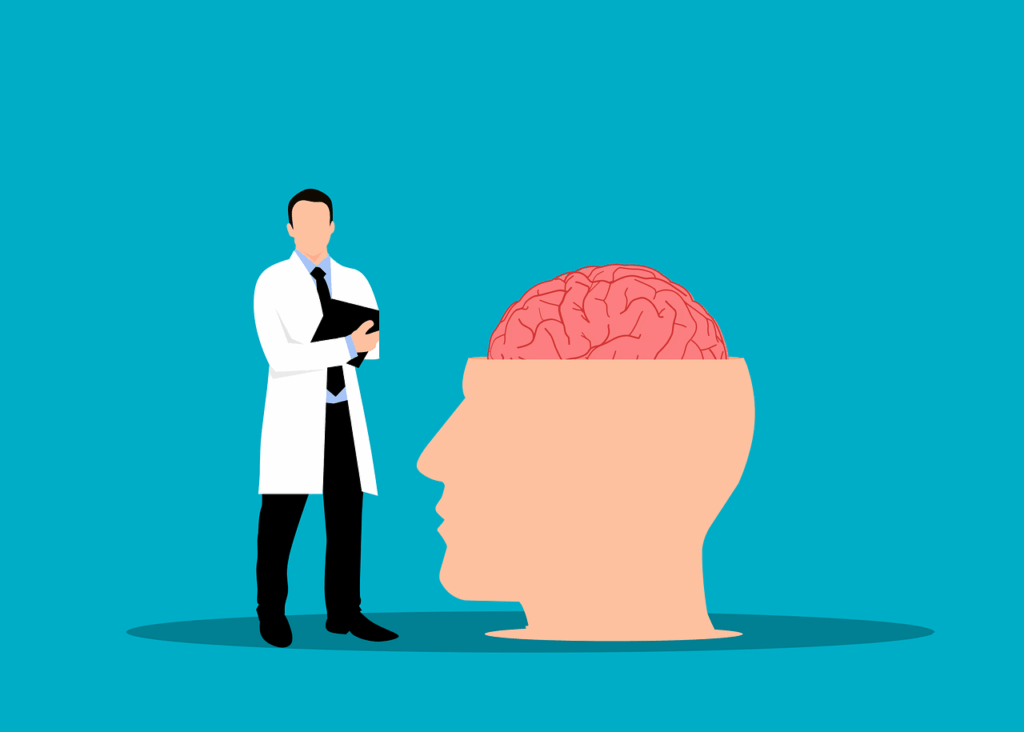
9. **Embracing Order: The Antidote to Cognitive Chaos**In the pursuit of a truly smart and resilient brain, one of the most invaluable habits we can cultivate is order. In a world often demanding our simultaneous attention, multitasking has become a widespread, yet detrimental, practice. While occasional task-juggling may be unavoidable, allowing it to become a regular pattern profoundly harms cognitive health. When the brain is forced to constantly switch between multiple job tasks, it expends significant energy merely on refocusing, leading to a staggering reduction in productivity by up to 40%. This frantic mental ping-pong neutralizes efficiency, overwhelms the cognitive system, and ultimately causes fractured thinking and debilitating brain fatigue.
The allure of multitasking often stems from a misconception that it helps accomplish more in less time, but neuroscience presents a starkly different reality. Each task switch incurs a cognitive “cost,” preventing the brain from fully immersing itself in any single activity. This perpetual state of partial attention inhibits the deep processing necessary for true learning, creativity, and problem-solving. Instead of fostering efficiency, it breeds superficial engagement and increases error rates, serving as a direct pathway to ‘Brain Rot’ by fragmenting our intellectual capacity and undermining sustained cognitive effort. A well-organized brain, much like a well-structured library, functions optimally when its resources are systematically allocated.
Cultivating an environment of order, both externally and internally, provides the optimal conditions for sustained intellectual performance. This involves consciously resisting the urge to constantly switch tasks, instead dedicating focused blocks of time to individual responsibilities. By minimizing distractions and structuring our work, we empower our brains to engage in singular, deep work, leading to greater concentration and information retention. This isn’t about rigid adherence to a schedule but about intentional prioritization of mental clarity over perceived busyness. True productivity springs from focused attention, not from the illusion of simultaneous accomplishment.
The impact of order extends beyond immediate task completion, influencing long-term cognitive well-being. A decluttered mental space, achieved by systematically addressing tasks rather than cyclically returning to them, reduces cognitive load and frees up mental resources for higher-level thinking. This deliberate cultivation of order acts as a protective mechanism against the chronic stress and mental exhaustion that contribute to ‘Brain Rot.’ By honoring our brain’s need for singular focus, we build a mind that is not only more efficient and productive but also calmer, more resilient, and inherently smarter.
10. **Cultivating Robust Social Connections**Human beings are intrinsically social creatures, and isolating ourselves from meaningful interaction can have surprisingly detrimental effects on cognitive health, subtly fostering the conditions for ‘Brain Rot.’ The absence of genuine social support — whether from an empathetic manager, a supportive coworker, or even a thoughtful HR professional — is directly tied to diminished brain health and reduced resilience. Conversely, fostering robust social connections acts as a powerful stimulant for the brain, enhancing its structure and function in profound ways. It underscores the idea that our intellect is not solely contained within our own skull but is significantly enriched by our interactions with others.
Engaging in social activities provides the brain with invaluable stimulation that goes far beyond mere conversation. Individuals who regularly volunteer, attend classes, or simply gather with friends at least once a week demonstrate healthier brains, characterized by more robust gray matter and a reduced rate of cognitive decline. Gray matter, essential for processing information and forming new memories, thrives on the complex demands of social interaction. These activities require us to interpret social cues, engage in empathy, articulate thoughts, and respond dynamically, all intricate cognitive exercises that strengthen neural pathways and combat mental stagnation.
The key to leveraging social interactions for brain health lies in cultivating *safe* and *meaningful* connections. These aren’t superficial encounters; they are interactions that involve genuine listening, mutual understanding, and the exchange of diverse perspectives. Such deep engagement is crucial for enhancing the brain’s gray matter, sharpening problem-solving abilities, and significantly amplifying career creativity and stamina. When we engage in conversations where we truly try to understand another person’s point of view, our brains are challenged to look at things in a new light, forging new neural connections and promoting cognitive flexibility.
Moreover, the emotional benefits of social support are critical for cognitive resilience. Feeling connected and supported reduces stress, a known antagonist to brain health, and fosters a sense of belonging vital for mental well-being. This protective emotional layer allows the brain to operate from a place of security and curiosity, rather than defensiveness. By prioritizing genuine human connection, we not only enrich our lives but also actively inoculate our brains against the creeping shadow of ‘Brain Rot,’ ensuring a vibrant, engaged, and continuously developing mind.
Read more about: John Burton, California’s Liberal Warrior: An In-Depth Look at a Political Boss’s Enduring Legacy
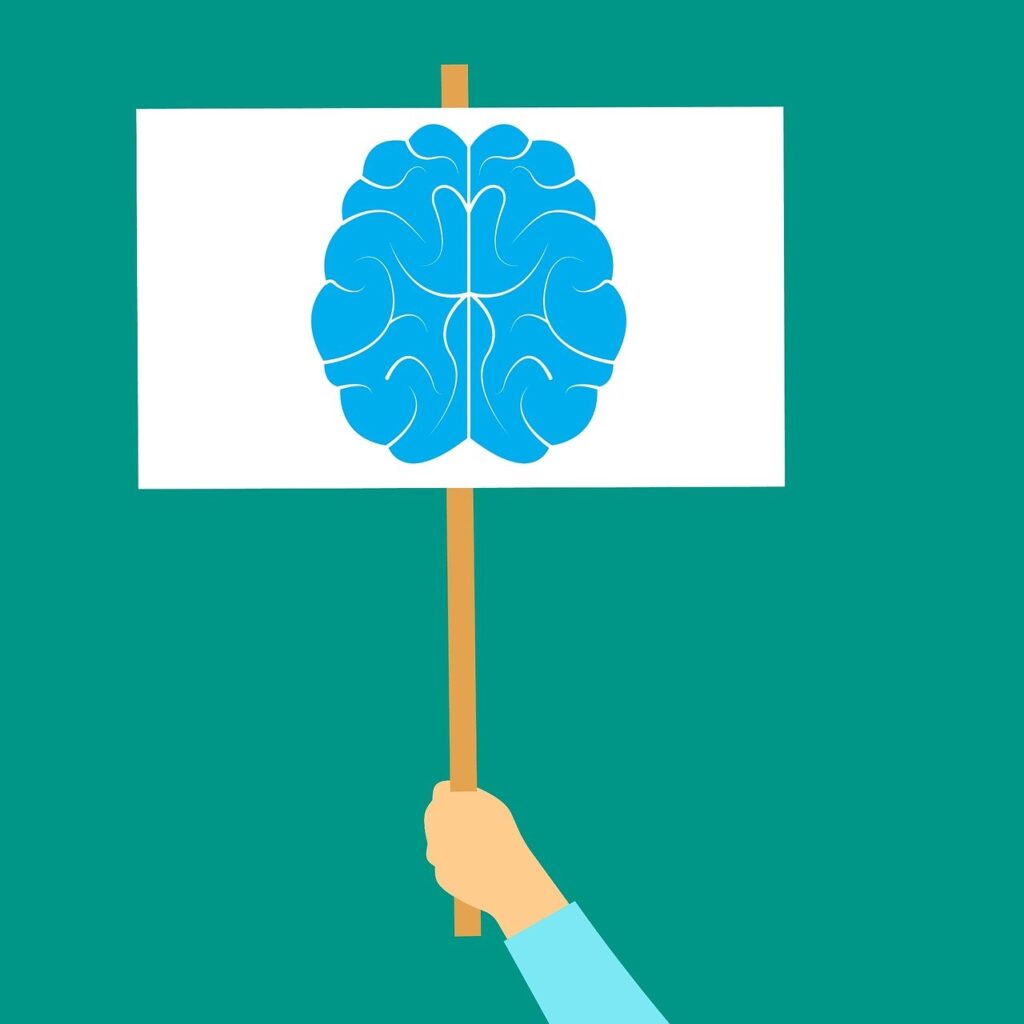
11. **The Unrivaled Power of Reading: A Gateway to Intellectual Expansion**In an era saturated with fleeting digital content, the simple, profound act of reading books stands as an unrivaled cornerstone for intellectual growth and a potent defense against ‘Brain Rot.’ It is a fundamental truth that the earlier in life an individual develops a love for reading and the more diverse reading materials they encounter, the more expansive their cognitive skills become. Reading and literacy are intrinsically linked to intelligence itself. Research consistently demonstrates that a strong reading habit not only enhances vocabulary but also profoundly aids in the development of intellectual functioning, keeping the brain healthy and resilient against age-related cognitive decline, and even staving off mental illnesses.
Reading is far more than passive information absorption; it is an active mental workout. As we navigate narratives, absorb complex information, and delve into different worlds, our brains are continually stimulated. Remembering character names, tracing intricate plotlines, or deciphering clues in a mystery novel all engage various memory functions, sharpening recall and analytical skills. The brain is forced to integrate new information, form connections, and actively interpret meaning, a process that builds robust neural pathways. This sustained cognitive engagement is paramount for maintaining mental acuity, making the brain more adept at comprehending new information and resisting intellectual stagnation.
Beyond the direct cognitive benefits, reading literature, in particular, cultivates a significant edge in interpersonal skills. While providing a rich wellspring for conversations, its deeper impact lies in fostering emotional intelligence. Studies have shown that avid readers often exhibit greater empathy than their non-reading counterparts. This is because literature allows us to step into the shoes of diverse characters, experiencing their thoughts, emotions, and motivations. This vicarious experience serves as a subconscious training ground for understanding human behavior, improving our ability to interpret subtle facial cues and decode complex expressions in real-life interactions.
Therefore, embracing a robust reading habit is a strategic investment in lifelong intelligence and personal development. It’s a continuous journey of discovery that stimulates the brain, strengthens memory, reduces cognitive decline, and profoundly enriches our emotional and social capacities. In a world clamoring for instant gratification, the patient, immersive act of reading offers a timeless pathway to a smarter, more empathetic, and more resilient mind, directly inoculating against the superficiality that ‘Brain Rot’ thrives upon.

12. **Strategic Information Consumption: Navigating the News Landscape**In our information-saturated age, there’s a pervasive misconception that to be truly smart, one must constantly be ‘up-to-date’ with every fleeting news cycle. However, this chaotic consumption, fueled by the fear of missing out (FOMO) and leading to perpetual information overload, rarely translates into valuable intelligence. In fact, mindlessly gorging on irrelevant or trivial news can actively contribute to ‘Brain Rot’ by cluttering mental space and fragmenting cognitive resources. The intelligent approach lies not in consuming more, but in consuming *strategically*.
Subscribing to filtered news services or curating your information intake offers a far superior pathway to genuine understanding and intellectual growth. This focused approach allows you to gain a better perspective on current events and topics *only* within your areas of interest or those truly critical for your knowledge base. It’s about deliberately filtering out the noise and concentrating on the signals that genuinely matter, ensuring that the knowledge you acquire is meaningful, applicable, and beneficial in the long run. This conscious curation prevents the brain from being overwhelmed by a deluge of transient data, freeing it to process and synthesize truly valuable insights.
The neurological impact of this strategic approach is profound. When the brain is presented with manageable, relevant information, it can engage in deeper processing, forming stronger neural connections and integrating new knowledge more effectively. Conversely, an unfiltered torrent of data forces the brain into a superficial scanning mode, where information is often forgotten as quickly as it is encountered. This intentional consumption cultivates mental discipline and sharpens critical thinking skills, transforming passive intake into active learning. It empowers the individual to discern reliable sources, question assumptions, and build a cohesive understanding of the world, rather than merely accumulating disjointed facts.
Consider the difference between aimlessly scrolling through social media feeds and engaging with a curated daily digest that synthesizes critical news from areas like ‘Wall Street to Silicon Valley.’ The latter provides a clear, concise, and relevant dose of information, fostering an informed perspective without triggering cognitive exhaustion. This discerning approach to information consumption is a powerful defense against the intellectual deterioration associated with ‘Brain Rot,’ allowing your brain to truly digest, reflect, and grow, rather than merely skim and forget. It’s a habit that cultivates depth over breadth, ensuring that your online time is wisely invested in your cognitive advancement.

13. **Embracing New Languages: A Cerebral Power-Up**In the multifaceted pursuit of a smarter brain, few habits offer as profound and wide-ranging cognitive benefits as learning a new language. Far from being a mere academic exercise, bilingualism – and indeed multilingualism – acts as a powerful cerebral power-up, significantly boosting intelligence in areas extending well beyond linguistic proficiency. Scientists have conclusively proven that engaging with a new language has a transformative effect on the brain, enhancing cognitive abilities and even acting as a remarkable shield against the onset of dementia in old age. It’s a testament to the brain’s incredible plasticity and capacity for growth when presented with structured novelty.
The neurological impact is particularly striking in its ability to delay neurodegenerative diseases. Research indicates that knowing two languages can postpone the onset of dementia by an impressive five years. This protective effect escalates with each additional language learned, with three languages delaying onset by 6.4 years, and four or more languages providing nearly a decade of protection. This phenomenon underscores the rigorous mental workout a new language provides, constantly challenging and strengthening neural networks. It’s a compelling demonstration of how active cognitive engagement can build a ‘cognitive reserve,’ making the brain more resilient to age-related decline and the insidious effects of ‘Brain Rot.’
Learning a new language is, in essence, an intensive full-brain workout, engaging nearly every form of memory. It demands the memorization of an entirely new lexicon, the mastery of complex grammatical rules, and the integration of these elements into rapid, instinctive communication. Furthermore, it requires the refinement of motor skills for correct pronunciation, all while simultaneously navigating the nuances of cultural context. The brain must continuously activate and switch between different language systems, a process that significantly improves executive functions such as attention span, working memory, and self-control. This constant mental gymnastics sculpts a more agile, efficient, and interconnected brain.
Crucially, embarking on this linguistic journey with a growth mindset is paramount. It involves embracing challenges, persevering through difficulties, and continually striving to stretch beyond one’s perceived capacity. This proactive engagement with a demanding intellectual task not only strengthens linguistic skills but also instills a powerful sense of cognitive agency and resilience. By committing to learning a new language, you are not just acquiring a skill; you are actively remodeling your brain for enhanced intelligence, sharper focus, and a formidable defense against cognitive stagnation, making it one of the most enriching habits for lifelong learning.

14. **Explaining Knowledge to Others: The Ultimate Learning Loop**To truly master a subject and cement its understanding in your mind, there is perhaps no more effective strategy than attempting to explain it to someone else. This principle, famously embodied in the Feynman technique, reveals a profound learning loop: the act of teaching compels the ‘teacher’ to clarify their own understanding, identify gaps in their knowledge, and articulate complex ideas with precision. It’s a powerful mechanism for moving beyond superficial recall to genuine comprehension, offering a direct antidote to the fragmented, shallow understanding that can characterize ‘Brain Rot.’
Researchers have consistently found that students enlisted to tutor others exhibit superior learning outcomes. They work harder to fully comprehend the material, recall it more accurately, and demonstrate a greater capacity to apply it to real-life situations. This heightened engagement stems from the inherent responsibility of instruction; knowing you must convey information clearly to another person dramatically elevates the stakes for your own learning. It forces a deeper level of processing, synthesis, and organization of information, transforming passive reception into active, constructive knowledge building.
The benefits extend even further. The very process of explaining often illuminates areas where one’s own understanding is vague or incomplete. A student’s insightful questions or struggle to grasp a concept can inspire the teacher to reconsider and explain the material in novel ways, deepening their own mastery. Furthermore, observing a student successfully apply the taught knowledge provides immediate, tangible feedback, reinforcing the teacher’s understanding and highlighting the practical utility of the information. This iterative loop of teaching and feedback creates a dynamic learning environment where both parties benefit.
It is no mere coincidence that studies have suggested first-born children tend to exhibit higher intelligence than their younger siblings, partly attributed to the time they spend teaching lessons they’ve already learned. This natural mentoring role, often unconscious, engages cognitive processes vital for comprehension and articulation. By embracing the habit of explaining what you know to others, you are not only sharing knowledge but also actively strengthening your own neural pathways, solidifying learning, and developing a more profound and adaptable intelligence. It is a powerful, reciprocal process that ensures your brain remains an active, engaged, and continuously evolving engine of understanding.
Cultivating a smarter, more resilient brain is not a matter of innate ability alone, but a lifelong journey of conscious habit formation. From immersing ourselves in the tranquility of nature to engaging in the rigorous mental workout of learning new languages, and from the disciplined clarity of strategic information consumption to the profound reinforcement of explaining what we know to others, each habit serves as a vital tool in our cognitive arsenal. By systematically integrating these practices into our daily lives, we actively inoculate our minds against the pervasive threat of ‘Brain Rot,’ unlocking our full intellectual potential and forging a pathway to sustained happiness, creativity, and career success. It’s an empowering realization: the power to elevate our intelligence, at any age, resides within the choices we make, day by day, to nurture our most extraordinary asset—our brain.

